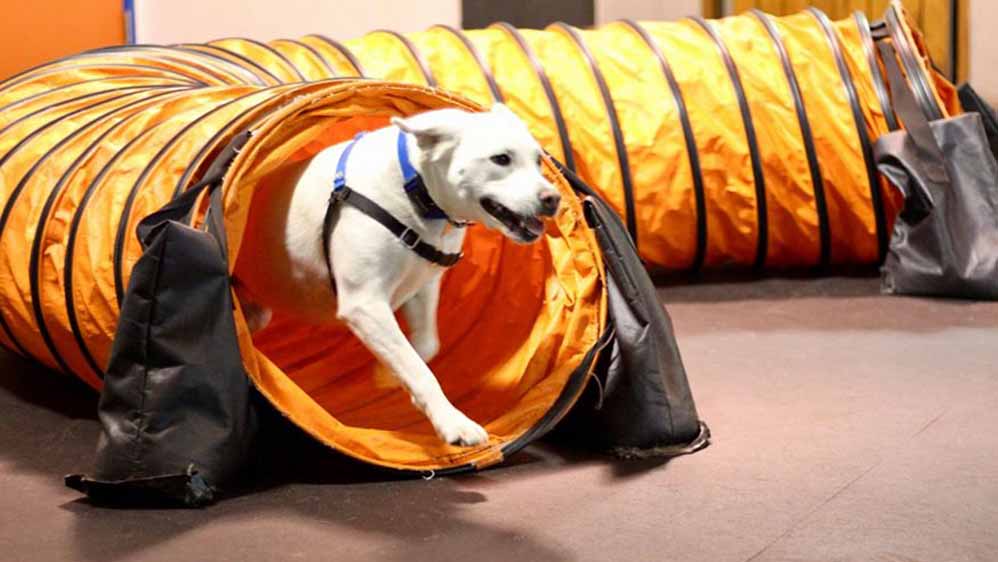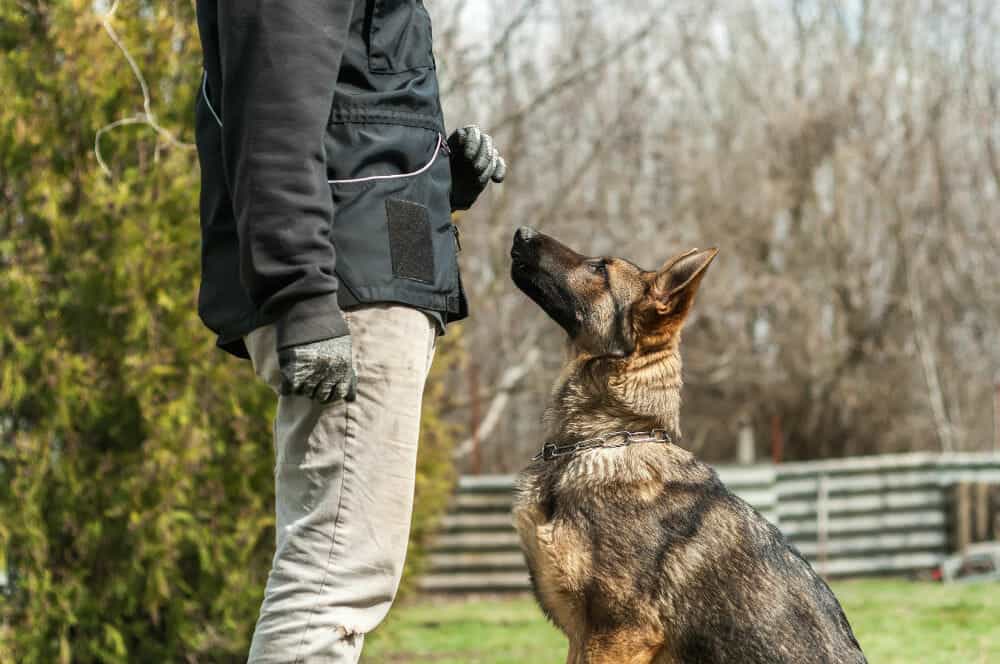Unleash Potential with Dog Training Near Me: Locate Your Local Experts
Unleash Potential with Dog Training Near Me: Locate Your Local Experts
Blog Article
Unlock Your Canine's Prospective: Proven Pet Dog Training Approaches for Success
Efficient dog training is a nuanced procedure that hinges on understanding canine actions and utilizing scientifically backed approaches. By integrating positive support, establishing clear commands, and focusing on socializing, pet dog owners can grow a productive partnership with their animals.
Understanding Pet Dog Behavior
Understanding pet behavior is crucial for efficient training and fostering a favorable relationship between pets and their owners. A comprehensive understanding of canine body language, vocalizations, and social communications is important for recognizing their feelings and demands. Canines connect largely with non-verbal signs; as an example, a wagging tail may indicate excitement, while pinned ears can signal concern or entry.

Additionally, ecological elements play a considerable function in shaping a canine's behavior. Changes in regular, new environments, or the presence of unfamiliar individuals can lead to stress or anxiousness in pets. Identifying these triggers makes it possible for proprietors to alleviate unfavorable reactions and develop ideal training approaches.
Eventually, a deep understanding of canine behavior lays the foundation for effective training techniques, enhancing both behavior and the total bond between the dog and its proprietor. dog training charlotte. This expertise is important for promoting a well-adjusted, happy canine friend
Positive Support Methods
Effective training counts heavily on positive reinforcement techniques, which have actually been shown to generate considerable cause forming desired actions in canines. This strategy includes rewarding a pet dog for exhibiting details actions, consequently increasing the chance that these habits will certainly be duplicated. Benefits can take various types, including treats, appreciation, toys, or playtime, depending upon what motivates the specific canine.

It is vital to progressively terminate benefits as the pet discovers the behavior, transitioning to intermittent reinforcement. This technique keeps the behavior with time while stopping reliance on constant incentives. By focusing on favorable support, instructors can cultivate a trusting relationship with their pet dogs, advertising a cooperative and healthy training atmosphere that boosts general obedience and efficiency.
Establishing Constant Commands
A fundamental aspect of successful pet training is the facility of consistent commands. Uniformity in commands is vital for effective communication in between the instructor and the dog. When commands are uniform, dogs learn to associate details words with desired habits, which accelerates the training process and enhances understanding.
To desensitization dog training establish regular commands, it is crucial that all member of the family utilize the same terms and gestures. As an example, if a single person uses "rest" while another states "rest down," it can develop complication for the dog. Select clear, unique words for commands and make certain everybody associated with the pet dog's training follows these selections.
Strengthen commands via frequent method, making sure that the pet gets ample opportunities to react appropriately. When a pet successfully complies with a command, prompt positive support ought to follow.
Finally, hold your horses. Developing consistent commands requires time and effort. With devotion and clarity, you will certainly aid your dog establish a strong understanding of assumptions, inevitably resulting in a mannerly friend.
Socialization and Direct Exposure
Socializing a pet dog is essential for cultivating a confident and well-adjusted companion. This procedure involves exposing your canine to a variety of environments, people, and various other animals to create their social skills and flexibility. Early socializing, ideally in between the ages of three to fourteen weeks, is critical, as it lays the foundation for a pet's future actions.
Throughout socializing, goal to offer favorable experiences in different setups, such as parks, hectic roads, and homes with various other pet dogs. Introduce your pet dog to various stimuli, consisting of noises, views, and scents, ensuring that each encounter is fulfilling. This direct exposure assists reduce anxiety and stress and anxiety, paving the means for a much more resistant dog.
Participating in controlled group play sessions with other pet dogs can also boost social abilities, instructing your family pet appropriate interactions and limits. Constantly monitor your pet dog's comfort level during these experiences, slowly increasing exposure as their confidence expands. Bear in mind, the goal is to produce an all-around family pet that prospers in diverse circumstances, promoting an unified connection with both people and other animals. Prioritizing socializing will considerably add to your dog's general joy and actions throughout their life.
Overcoming Common Educating Challenges

An additional frequent concern stop my dog barking at other dogs is distraction. Pet dogs may struggle to focus in hectic or unfamiliar settings. Slowly desensitize your dog to disturbances by beginning training in a silent setting and slowly presenting more stimuli as they come to be competent (dog training near me). Favorable reinforcement strategies, such as deals with and praise, can preserve inspiration and focus.
Furthermore, behavior problems like jumping or too much barking can become irritating. Address these by instructing alternative behaviors, such as sitting calmly when welcoming guests. Consistency and persistence are important; enhance wanted behaviors continually and avoid scolding, which can result in complication.
Finally, recognize that each dog is special, and training timelines might vary. Tailor your technique to your pet's specific requirements, and seek expert guidance if required. With determination and the best techniques, overcoming these challenges can result in a well-trained, satisfied canine companion.
Verdict
In conclusion, unlocking a pet dog's potential requires a thorough technique that includes an understanding of canine look at here now behavior, the application of positive support methods, and the facility of regular commands. Early socializing and direct exposure to varied environments further boost a pet dog's adaptability and self-confidence. By resolving common training obstacles with customized techniques and persistence, a harmonious and participating relationship in between pet dog and handler can be fostered, eventually causing a mannerly companion capable of flourishing in various circumstances.
Reliable dog training is a nuanced process that hinges on recognizing canine behavior and utilizing scientifically backed methods.Comprehending pet dog behavior is essential for reliable training and promoting a positive relationship in between dogs and their owners.Effective training relies greatly on favorable support strategies, which have actually been shown to produce significant results in forming preferred actions in pets. When commands are consistent, canines find out to associate particular words with desired habits, which accelerates the training process and enhances understanding.
In verdict, opening a canine's possible necessitates an extensive strategy that integrates an understanding of canine actions, the application of positive support strategies, and the facility of consistent commands.
Report this page